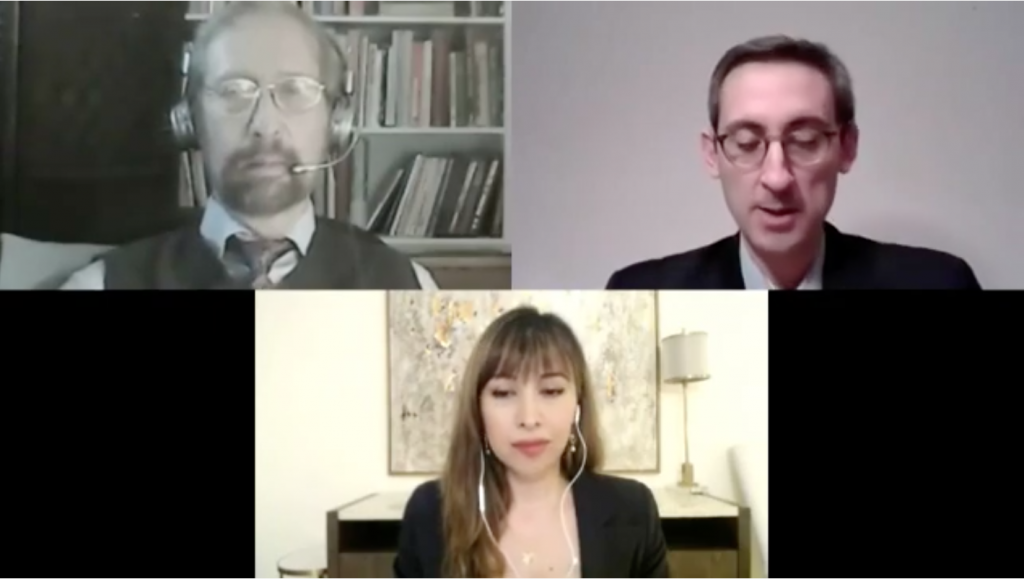Dr Carole Nakhle, CEO of Crystol Energy, spoke on energy transition at a webinar hosted by “Le Cercle Quebecois des Affaires Internationales” on the 10th of November 2021.
Dr Nakhle highlighted the importance of the topic while stressing on the fact that there is no universal approach to achieving this transition since each country has its own prerequisites and priorities.
With regard to the current situation of the energy markets, what she finds most interesting is the rise in prices of fossil fuels in a relatively short period of time. Whether it’s oil, natural gas, or coal, we’ve seen levels recently that we haven’t seen for years. But we must be diligent with the use of expressions such as ‘energy crisis’.
The price of oil has far outperformed the levels seen before the pandemic and even the levels we saw in 2014 for WTI and 2018 for Brent. Perhaps for oil what is interesting is not the price level (because we saw much higher prices in 2011 until the summer of 2014) but rather it is the duration that the barrel has taken to surpass the levels recorded before the crisis. Historically, it took between three and five years for the price of oil to surpass pre-crisis levels. Today, although the market and the world economy have suffered a crisis like no other, the price of oil has taken almost a year to return to pre-crisis levels. And this is the consequence of the great effort of OPEC+.
In this respect, Dr Nakhle does not believe that a crisis in the oil market is present (as for natural gas). For example, the price of a barrel of oil has increased by 40% since January 2021; whereas the price of natural gas in Europe (TTF – the reference index ‘spot price’ in the Netherlands) has increased by more than 400% during the same period. The rise in natural gas prices has been caused by several converging events at the same time: some are linked to the pandemic, other factors are related to time (the winter of 2020-2021 in Europe was very long and very cold). But there are also factors which are the manifestation of developments that began several years ago (such as the globalisation of the markets through Liquified Natural Gas-LNG) and the resulting competition between markets that were once independent, especially Asia and Europe. And of course there is the Russian factor – a combination of geopolitics and business strategy to show that the ‘spot pricing’ that is the result of the globalisation of gas markets does not ensure energy security.
In the past two centuries, the world has seen at least two important energy transitions and for each one a different reason:
- The first is the transition from traditional fuels (e.g. wood) to coal was facilitated by a major industrial transformation – ‘The Industrial Revolution’.
- The second is the transition from coal dominance to oil dominance and that was facilitated by the advantage that oil had over coal as price and availability.
Today, the transition from the dominance of fossil fuels to that of renewable and nuclear energies is driven by changes in preferences. And that is why it depends largely on the role of the government and in particular the price of the carbon to accelerate it. The major hurdle, however, is in putting a fairly high price on carbon which has been a very sensitive subject for politicians all over the world including in Europe and the US.
The example of electricity also supports the fact that the energy transition may take longer than many hope for. In the past 35 years, the share of fossil fuels, especially coal, in the primary electricity mix has hardly changed. Under existing technological constraints, the energy transition should be more about integration rather than substitution.
Dr Nakhle was joined by Dr Robert M. Cutler, Senior Research Fellow & Director, Energy Security Program at NATO Association of Canada.
Watch the discussion (in French):
Related Analysis
“European gas crunch: Calm before the storm?“, Dr Carole Nakhle, Dec 2021
“European gas crisis – the new normal“, Dr Carole Nakhle, Nov 2021
“Oil markets: What crisis?“, Dr Carole Nakhle, Nov 2021
“An Energy Crisis Like No Other“, Lord Howell, Oct 2021
“Trying to grasp the geopolitics of the energy transition“, Dr Carole Nakhle, Sep 2021
“The energy transition: Some inconvenient truths“, Dr Carole Nakhle, Jul 2021









